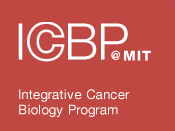| Title | Ulcerative colitis and autoimmunity induced by loss of myeloid alphav integrins. |
| Publication Type | Journal Article |
| Year of Publication | 2007 |
| Authors | Lacy-Hulbert, A, Smith, AM, Tissire, H, Barry, M, Crowley, D, Bronson, RT, Roes, JT, Savill, JS, Hynes, RO |
| Journal | Proc Natl Acad Sci U S A |
| Volume | 104 |
| Issue | 40 |
| Pagination | 15823-8 |
| Date Published | 2007 Oct 2 |
| ISSN | 0027-8424 |
| Keywords | Animals, Autoimmunity, Colitis, Ulcerative, Dendritic Cells, Integrin alphaV, Lymph Nodes, Lymphocyte Activation, Macrophages, Mice, Neutrophils, Phagocytosis, Spleen, T-Lymphocytes, T-Lymphocytes, Regulatory |
| Abstract | The gastrointestinal tract is constantly challenged by foreign antigens and commensal bacteria but nonetheless is able to maintain a state of immunological quiescence. Recent advances have highlighted the importance of active suppression by regulatory lymphocytes and immunosuppressive cytokines in controlling mucosal immunity. Failures of these mechanisms contribute to the development of inflammatory bowel disease, but how these regulatory networks are established remains unclear. Here, we demonstrate key roles for alphav integrins in regulation of mucosal immunity. We report that deletion of alphav in the immune system causes severe colitis, autoimmunity, and cancer. Mice lacking immune cell alphav have fewer regulatory T (Treg) cells in the colon and corresponding increases in activated T cells and T cell cytokine production, leading to colitis. Using conditional gene targeting, we demonstrate that this is specifically attributable to loss of alphav from myeloid cells. Furthermore, we show that gut-associated macrophages and dendritic cells fail both to remove apoptotic cells efficiently and to induce Treg cells. Our results identify a vital role for myeloid alphav integrins in generating mucosal Treg cells and emphasize the importance of antigen-presenting cells in establishing immune tolerance. |
| DOI | 10.1073/pnas.0707421104 |
| Alternate Journal | Proc. Natl. Acad. Sci. U.S.A. |
| PubMed ID | 17895374 |
| PubMed Central ID | PMC1994135 |
| Grant List | 064487 / / Wellcome Trust / United Kingdom U54-CA112967 / CA / NCI NIH HHS / United States |
